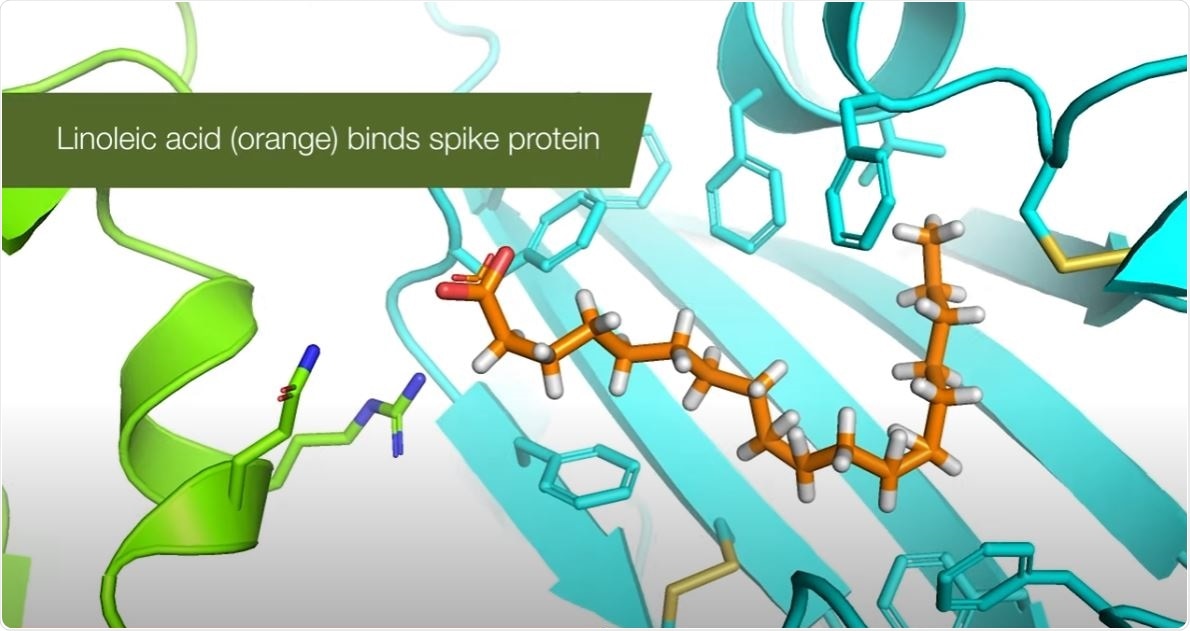The coronavirus disease (COVID-19), caused by the severe acute respiratory syndrome coronavirus 2 (SARS-CoV-2) is a respiratory illness that may lead to pneumonia and acute respiratory distress syndrome. Though some people may only experience mild illness, others may develop severe, potentially fatal symptoms.
Now, a team of researchers at the Max Planck-Bristol Center for Minimal Biology and Bristol's School of Biochemistry has identified a druggable pocket in the virus's spike protein that can be used to prevent the infection of cells. The study findings, published in the journal Science, are a groundbreaking discovery that will help develop new therapies and drugs to stem the growing pandemic.

The study
To arrive at the findings of the study, the researchers, headed by Professor Imre Berger, and Professor Christiane Schaffitzel, utilized a powerful imaging technique, dubbed as the electron cryomicroscopy (cryo-EM), to study and explore the characteristics of the SARS-CoV-2 spike protein at the atomic level. They produced the virus spike proteins in the laboratory to study them and determine their structure.
Powered by the Oracle high-performing cloud computing, the team has created a three-dimensional stricture of the virus spike protein, which allowed them to observe the structure and identify its molecular composition.
Upon the analysis of the molecular structure of the spike protein, the team has found something interesting. They revealed the presence of a small molecule, called linoleic acid (LA), which was discovered in a customized pocket within the spike protein.
A new drug target in the fight against COVID-19
What is linoleic acid?
Linoleic acid is a small molecule and a free fatty acid essential for many cellular functions. Two fatty acids are essential in the diet – linoleic or omega-6 fatty acid and alpha-linolenic or omega-3 fatty acid. Both are polyunsaturated fatty acids, which means that they contain two or more double bonds.
The human body cannot produce linoleic acid, and it is found mainly in food. Intriguingly, LA plays a significant role in inflammation and immune modulation, which are key elements of the COVID-19 infection. Aside from that, these fatty acids are also essential to maintain cell membranes in the lungs to promote ventilation. LA also helps in the production of prostaglandins that protect against inflammation in the cardiovascular system.
"We were truly puzzled by our discovery and its implications. So here we have LA, a molecule which is at the center of those functions that go haywire in COVID-19 patients, with terrible consequences. And the virus that is causing all this chaos, according to our data, grabs and holds on to exactly this molecule – basically disarming much of the body's defenses," Professor Berger said.
The researchers also explained that in other illnesses, interfering with the metabolic pathways of the linoleic acid can induce systemic inflammation, pneumonia, and acute respiratory distress syndrome (ARDS). All these health problems are seen in patients with COVID-19. The study findings provide the first direct link between LA, the health consequences, and the virus itself.
For instance, in the common cold virus, rhinovirus, scientists also discovered a similar pocket to develop molecules that attached firmly to the pocket to disrupt the structure, stemming from its infectivity. This same method can be used for SARS-CoV-2, potentially providing a method to combat the pandemic, which has now infected more than 32 million people, and killing at least 979,000.
Source:
Journal reference: